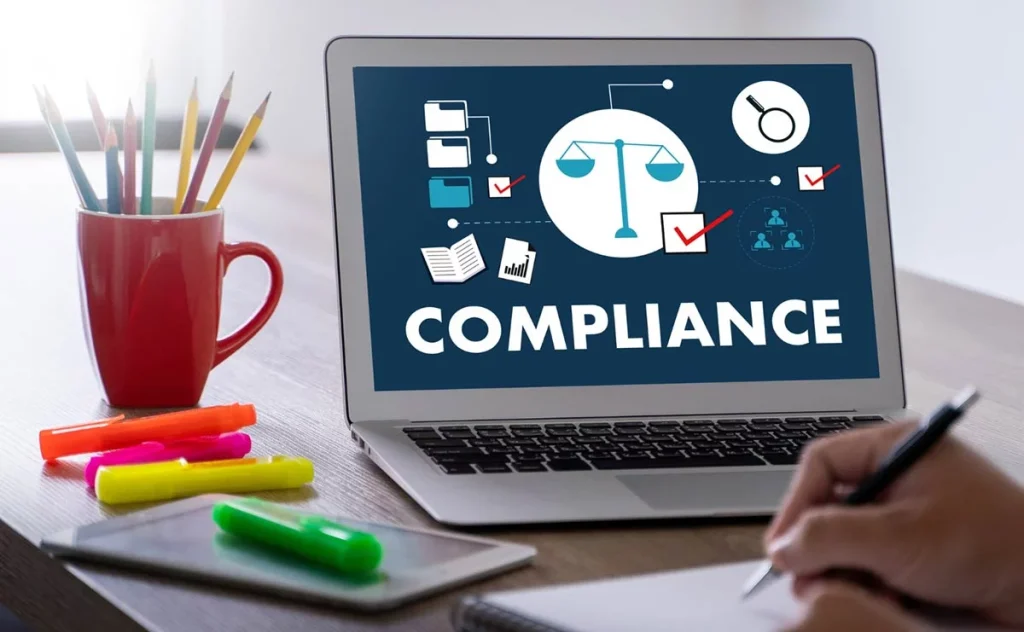Starting an LLC (Limited Liability Company) is a strategic move for entrepreneurs, offering liability protection and flexibility in management. However, forming an LLC is just the beginning. To keep your business in good standing, it’s crucial to adhere to state and federal compliance requirements. This guide will walk you through the key compliance measures to prevent fines and penalties that could jeopardize your LLC’s success.
1. Understanding the Importance of LLC Compliance
Compliance is not just a legal obligation; it’s vital for maintaining your LLC’s limited liability status. Non-compliance could result in hefty fines, penalties, and even the dissolution of your business. Moreover, failing to adhere to compliance regulations can lead to the piercing of the corporate veil, putting your personal assets at risk.
2. Maintain Accurate and Updated Records
Proper record-keeping is essential when starting an LLC. This involves keeping accurate financial records, meeting minutes, and any changes in ownership or management. States often require LLCs to keep certain records at their principal office, such as:
- A current list of all members and their contributions.
- Records of meetings or decisions made by members and managers.
- Copies of your LLC’s formation documents, such as the Articles of Organization.
Failure to maintain these records can lead to issues if your LLC is ever audited or sued. To ensure accuracy, consider using accounting software or hiring a professional to handle this aspect.
3. File Annual Reports on Time
Most states require LLCs to submit an annual or biennial report. This document typically includes basic information about your business, such as your LLC’s address, the names of members or managers, and contact details. Missing a filing deadline or neglecting to file altogether can result in penalties, suspension of your business license, or administrative dissolution.
To avoid fines, mark your calendar with the filing deadlines or sign up for automated reminders through your state’s website. If your LLC operates in multiple states, ensure you comply with each state’s unique reporting requirements.
4. Pay State and Federal Taxes
Starting an LLC comes with various tax responsibilities. Depending on your LLC’s classification, you may be required to pay:
- Federal Taxes: LLCs can be taxed as a sole proprietorship, partnership, or corporation. Make sure to understand your federal tax obligations based on your chosen tax status.
- State and Local Taxes: States impose different taxes on LLCs, such as sales tax, franchise tax, or excise tax. Neglecting these taxes can lead to significant penalties and interest charges.
To stay on top of your tax obligations, consult a tax professional or use reliable tax software tailored to LLCs. Regularly review your state’s tax requirements, as these can change from year to year.
5. Appoint and Maintain a Registered Agent
A registered agent acts as your LLC’s official point of contact for receiving legal documents, such as court summons or compliance notices. In most states, having a registered agent is mandatory when starting an LLC.
It’s critical to maintain an active registered agent. If you change agents or addresses, promptly update this information with the state. Failing to do so can result in missed legal notices and eventual penalties or default judgments against your LLC.
6. Hold and Document Regular Meetings
Even if your state does not require regular meetings for LLCs, it’s a good practice to hold them and keep detailed minutes. This shows that your LLC is a separate entity, strengthening your liability protection. During these meetings, members can discuss key issues such as:
- Adopting or amending the operating agreement.
- Financial updates and distributions.
- Electing new managers or members.
Documenting these meetings in your company records helps demonstrate that you’re following corporate formalities, which could protect you in legal disputes.
7. Review and Update Your Operating Agreement
Your operating agreement is the backbone of your LLC’s structure, outlining management roles, decision-making procedures, and profit distributions. As your business grows or its ownership changes, it’s crucial to update your operating agreement accordingly.
If you bring in new members, change profit-sharing rules, or expand your business’s purpose, these changes should be reflected in an updated operating agreement. Failing to do so could create legal complications down the line.
8. Keep Business and Personal Finances Separate
One of the most significant compliance issues LLC owners face is the commingling of personal and business finances. To maintain the protection of your LLC’s limited liability status, you must operate your LLC as a distinct entity. This involves:
- Having a separate business bank account.
- Using business funds only for business-related expenses.
- Properly documenting any loans or payments made to yourself as the owner.
Commingling funds could lead to the piercing of the corporate veil, which would allow creditors to go after your personal assets in the event of a lawsuit.
9. Renew Business Licenses and Permits
Depending on your industry and location, your LLC may need specific licenses and permits to operate legally. These could include:
- Professional licenses for specialized services (e.g., legal, medical).
- Health and safety permits.
- Zoning permits.
Most licenses and permits require periodic renewal. Keep track of renewal deadlines to avoid disruptions in your business and potential penalties.
10. Conclusion: Stay Proactive to Maintain Compliance
Starting an LLC is just the beginning of your journey. Remaining compliant requires diligent record-keeping, meeting deadlines, and staying up-to-date with changing regulations. The consequences of non-compliance can be severe, but with proactive measures, you can protect your business and its assets.
By following these steps and consulting legal or financial professionals when necessary, you’ll be well-equipped to keep your LLC in good standing and avoid costly fines and penalties.











